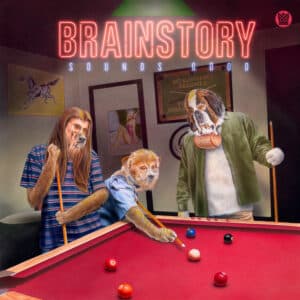The latest Martin Scorsese film, Killers of the Flower Moon, follows Ernest Burkhart, who gets discharged from the US Army and begins working for his uncle in Osage County, Oklahoma. When the discovery of oil occurs, suddenly, the people of the Osage Nation are murdered. The FBI becomes suspicious after a series of fatalities, and a case opens up.
With excellent critical appraisal and ten Academy-award nominations, Killers of the Flower Moon is one of the best Scorsese films in the last two decades.
Here are some of our favourite quotes from Killers of the Flower Moon.
- William Hale: Expectin’ a miracle to make all this go away? Ernest Burkhart: [Shakes head] William Hale: You know they don’t happen anymore.
- William Hale: This supposed to be a suicide, you dumb bell. You didn’t tell him to leave the gun? Ernest Burkhart: I don’t know why. I told him to leave the gun. I told him… William Hale: Told him to leave the gun. Ernest Burkhart: Just like you told me, King. I don’t know why he didn’t. I don’t know why. I told him just like you told me. William Hale: You told him to do it in the front of the head, then why did he do it in the back of the head? It’s so simple. The front is the front. The back is the back.
- William Hale: You’ve got to take back control of your home!
- William Hale: Money flows freely here now. Ernest Burkhart: I do love that money, Sir.
- Mollie Burkhart: The storm is powerful. So we have to be quiet for now. Ernest Burkhart: It’s good for the crops, that’s for sure. Mollie Burkhart: Just be still.
- Mollie Burkhart: Just make sure you know the road.
- William Hale: You let her have her secrets. That way, you’ll have yours.
- Minnie: He wants our money. Mollie Burkhart: Of course he wants money. But he also wants to be settled. He’s not restless. Reta: His uncle has money. It’s not money he wants. He loves you.
- Ernest Burkhart: If you’ve got questions go see the Sheriff.
- Chief Bonnicastle: In the old days we would fight these people. Twenty years ago I fought overseas in The Boxer Rebellion. I was one of the first to climb over that Great Wall. I knew who my enemy was and I knew who I had to kill. If we could find these people we would fight them. But now this invisible enemy we cannot see. We can’t trust any of the local officials. We can’t trust the state government. We can’t trust the Bureau of Affairs officials. We can’t trust our neighbor. We can’t trust the local pastor. We can’t trust the morgue, the morticians, funeral homes. We can’t trust you. We can’t trust anybody. We don’t see any stop.Try to make it stop.
- Hale: This is not a Denver problem, this is a Fairfax problem.
- Ernest Burkhart: It’s time for all the true facts to come out…














